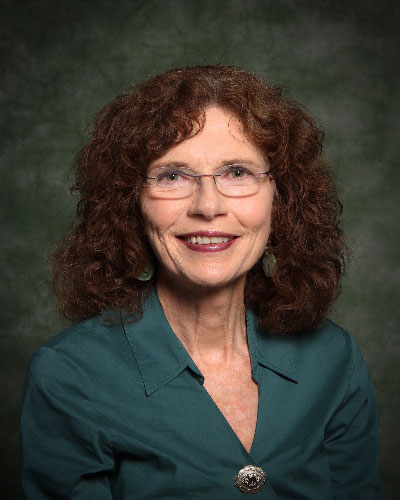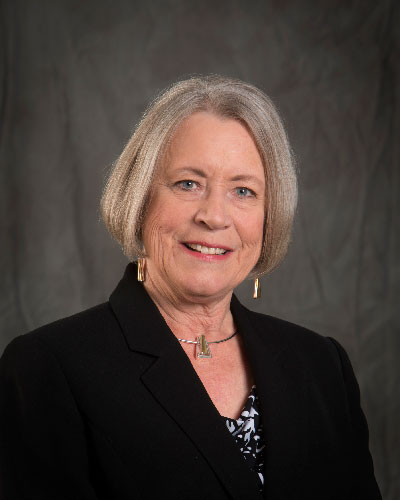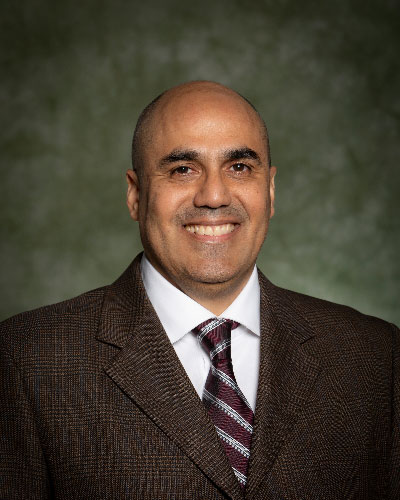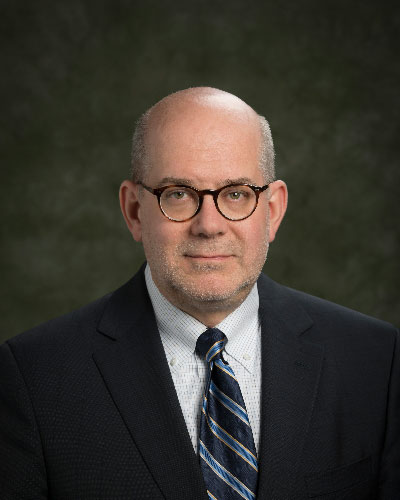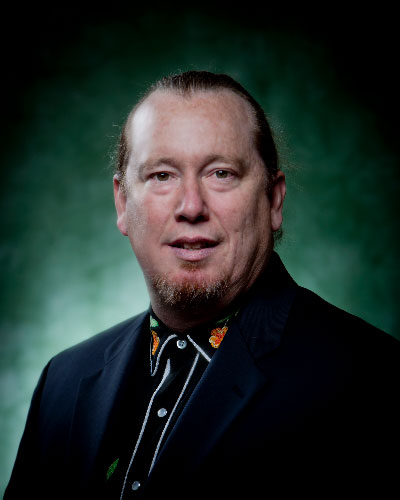Five Binghamton faculty promoted to distinguished ranks
Four promoted to distinguished professor and one to distinguished service professor
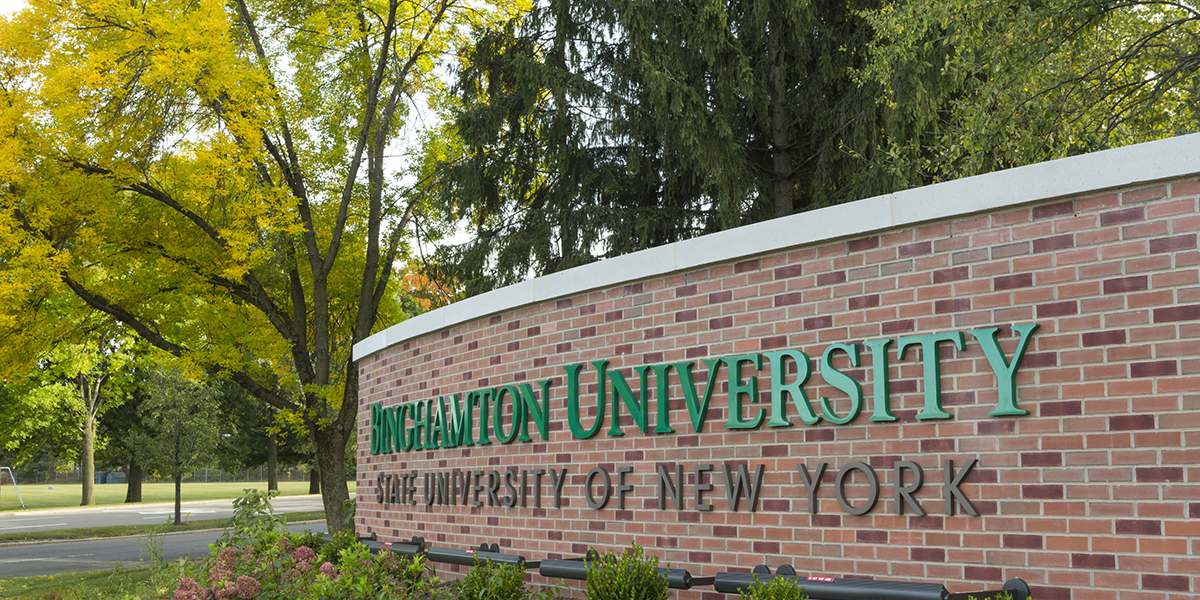
Five Binghamton University faculty have been promoted to the ranks of distinguished faculty, including four to distinguished professor and one to distinguished service professor.
Promotion to distinguished professor is the highest faculty rank that SUNY awards, and it is reserved for those who have achieved national or international prominence and an exemplary reputation within their discipline. Distinguished service professors are recognized for their distinctive contributions and outstanding service to the University community, department and school in support of the University’s multi-faceted teaching, research and service mission.
The five, who join with 33 active Binghamton faculty holding the distinguished, distinguished teaching or distinguished service titles, are noted here, along with a brief synopsis of their career, their thoughts about achieving distinguished rank and thoughts from President Harvey Stenger on their promotions:
Jaimee Wriston Colbert
Distinguished Professor of English and Creative Writing
Wriston Colbert, who recently gave the Harpur Dean’s Distinguished Lecture, has won two Chancellor’s Awards (for service in 2013 and for scholarly or creative activities in 2019) and has achieved an international reputation. She is a leading voice in eco-fiction and a master of the novel-in-stories format — collections of interconnected short stories — and has been called the most gifted writer in the country of this genre. She has published seven acclaimed novels and her eighth, How Not to Drown, is forthcoming this May. She has received awards including the 2018 International Book Award for Short Stories, the Independent Publisher Book Awards’ Gold Medal and the Willa Cather Fiction Prize, and has been invited to give keynote lectures, interviews and podcasts around the world, highlighting her unique style and vision that honors her commitment to social justice and protection of the environment. Her inspiring works have appeared in The Gettysburg Review, New Letters and Prairie Schooner, and have been broadcast on “Selected Shorts.” A book reviewer herself for the New York Journal of Books, she serves on editorial boards in Indonesia, Turkey and India and has had a remarkable impact upon American literary fiction.
Thrilled to get the news that she had been promoted to distinguished professor, Wriston Colbert called it an honor. “It takes a village, as the saying goes, and over the years since I joined the faculty in 2001, it’s been the support and encouragement of my colleagues, as well as Harpur College and Binghamton University’s administration, that has made this possible,” she said. “I’m delighted to join the ranks of our distinguished faculty, and I will continue to work hard to honor the institution that has honored me”.
Stenger noted that Wriston Colbert is a “writer’s writer” who has extensive recognition for her work and who has been a leading contributor to the genre of eco-fiction and has excelled in the development of the novel-in-stories format. Luckily, he said, “her award-winning works of fiction show no sign of stopping.”
“Her brilliance as a writer is not found just at the level of the sentence, She takes those sentences and combines them to produce masterful work that addresses challenging topics,” Stenger added.
Gloria Meredith
Founding Dean of the School of Pharmacy and Pharmaceutical Sciences
Distinguished Professor of Pharmaceutical Sciences
Meredith is an internationally recognized neuroscientist whose foundational studies on structural and functional plasticity of the dopamine signaling system in the brain have shaped two complementary research fields: the study of Parkinson’s disease and the understanding of psychostimulants on neural circuits. Her seminal work was the first to develop a Parkinsonian model that showed a slow, progressive loss of nigrostriatal dopaminergic function over weeks to months that mimics the progressive Parkinson’s disease in humans. This model, now used broadly in preclinical studies, has significantly improved our understanding of Parkinson’s disease pathology. In a seemingly separate line of inquiry, her work has examined how psychostimulants, such as amphetamine, precipitate synaptic changes during emotional learning for drug reward, thereby providing a novel framework for understanding neural circuits and mechanisms contributing to reward learning that propelled the field forward significantly. And at Binghamton, she has expanded the School of Pharmacy’s research profile. Her research has been cited over 7,500 times, she is the recipient of the Morris L. Parker Award for meritorious scientific research and she has received over $10 million in grants from agencies such as the National Institutes of Health (including two ROI as PI and one as co-PI), the Michael J. Fox Foundation for Parkinson’s Disease and the Department of Defense. As founding dean of two separate schools of pharmacy, she has shaped a generation of scientists.
“I am pleased and truly honored to have my career in neuroscience research recognized by the SUNY Board of Trustees as significant enough for promotion to distinguished professor,” Meredith said. “This is an accomplishment of a lifetime but, of course, I must give credit to the many collaborators from around the world with whom I worked so closely over the years. I also hope that the recognition of my research will be an encouragement to the School of Pharmacy and Pharmaceutical Sciences faculty and students.”
Acknowledging that much of Meredith’s research has been accomplished while she held administrative appointments and established two schools of pharmacy, Stenger lauded her for transformational achievements for Binghamton University.
“Her reviewers note her dedication to her students and the act that many of them are now senior scientists in the field themselves,” Stenger said, before citing research accomplishments, her h-index of 46 and her strong grant funding record. “Her scholarly experience and excellence have made her a role model for faculty, not just in pharmacy, but across the entire campus.”
Pedro Ontaneda
Distinguished Professor of Mathematical Sciences
One of the foremost geometers in the world with a reputation for answering well-known, open problems that have perplexed mathematicians for decades and even centuries, Ontaneda made discoveries early in his career concerning harmonic maps and dynamical systems that led to his most profound discovery: through a ground-breaking series of papers involving skillful use of methods from analysis, topology and geometry, he unearthed the existence of vast numbers of previously unknown spaces, or “manifolds,” of negative curvature. Until this discovery, only a limited number of examples of this phenomenon were known to exist and some pure mathematicians doubted more such spaces could be found. The discovery has implications for analytic geometry, number theory and the study of space-times. Apart from its mathematical importance, negative curvature arises in problems of minimizing energy, as well as in other areas of advanced physics. His landmark achievement has changed the landscape of his field and his central, deep and difficult work has earned him a place in history. He has had continuous support from the National Science Foundation since 2006, one of a very few pure mathematicians who are consistently successful in securing funding. He was recognized with a Chancellor’s Award for Excellence in Scholarly or Creative Activities in 2018.
“I am thankful to the SUNY Board of Trustees for the honor,” said Ontaneda.
“From his first major breakthrough in his dissertation in 1994 to what his external reviewers believe has been his best work only recently published, Pedro Ontaneda has produced both beautiful and surprising results that have transformed his branch of mathematics,” said Stenger.
Mark Poliks
Director of the Center for Advanced Microelectronics Manufacturing
Distinguished Professor of Systems Science and Industrial Engineering
Poliks has made significant and sustained contributions to the fields of electronics packaging, flexible and hybrid electronics, and his research has promoted understanding of industry relevant topics that include high-performance electronic interconnects, direct interfacing of soft and hard electronics, medical and industrial sensors, printed radio frequency (RF) components, materials, processing, aerosol jet printing, roll-to-roll manufacturing and reliability of electronics. He has created new additive and semi-additive manufacturing approaches for the fabrication of sensors, thin-film transistors and RF devices and antennas on flexible plastic or glass. In addition, he has investigated interconnect strategies for thinned integrated circuits in flexible hybrid wearable healthcare devices such as ECG and temperature sensing patches, flexible capacitive ECG electrodes, sweat/hydration sensors or industrial monitoring systems, and established methods to print fine meshed circuits and components onto flexible and complex surfaces. Through his extensive studies of the mechanical, cyclic fatigue, and current carrying behavior of flexible and stretchable hybrid electronics; and the interaction of functional inks on fibrous materials, he has provided a fundamental understanding of the aerosol-jet printing process. A recipient of the Chancellor’s Award for Excellence in Scholarship and Creative Activities in 2017, he has been cited more than 3,800 times, making him the second-most cited author in the field of flexible hybrid electronics and the third-most cited in electronics manufacturing. He has been awarded 65 grants, totaling more than $20 million in research funding and more than $30 million in equipment and infrastructure funding.
“I am very fortunate to have the opportunity to work with many talented Binghamton University graduate and undergraduate students, brilliant faculty colleagues and a very supportive University administration,” Poliks said. “As faculty, we are all responsible for research, teaching and service to our campus communities, and these roles and responsibilities only grow in depth and breadth with tenure and promotion. I look forward to mentoring our junior faculty and sharing the many opportunities that I have had.”
“The work that Professor Poliks does touches the lives of so many as he has contributed to the development of technology that advances the manufacturing of electronic circulis, memories, physical and chemical sensors, biological and medical devices, photovoltaic cells, energy storage devices and lighting,” said Stenger. Quoting a reviewer, “His work clearly leads the direction and future in his field, it serves the needs of the electronics industry and advances the mission of the State University of New York.”
Daryl Santos
Vice Provost for Diversity and Inclusiveness
Distinguished Service Professor of Systems Science and Industrial Engineering
Santos, recipient of the Chancellor’s Award for Excellence in Teaching in 2005 and the Chancellor’s Award for Excellence in Scholarship and Creative Activities in 2011, has an extensive record of service that began when he was an assistant professor and has continued across the course of his career, growing in the number of his commitments and their impact. He has served as director of undergraduate and graduate studies for his department, director and advisor to the first-year engineering program in his college, and as faculty advisor for the Society for Hispanic Professional Engineers and the Society for Black Engineers. He has provided leadership for research and industrial outreach that contributes to state economic development as an assistant director of the Watson Institute for Systems Excellence, a thrust leader for the Center for Advanced Microelectronics Manufacturing, and as director of the Integrated Electronics Engineering Center. In his roles advancing diversity and inclusiveness, he co-developed the University’s Presidential Diversity Postdoctoral Fellowship Program. He also served on the SUNY Diversity Task Force, helping to formulate procedures and recommendations that led to SUNY’s Diversity Policy, and co-developed Binghamton’s first Campus Climate Survey. At the national level, he co-founded and has served in key leadership positions for the Society for Industrial and Systems Engineers. At the international level, he has forged partnerships with leading universities — the Universidad de Monterrey in Mexico and the Korea Advanced Institute of Science and Technology (KAIST) in South Korea.
“It’s certainly an honor to be recognized for one’s accomplishments,” Santos said. “What has really made it easy, all these years, to do what I do has been the support of faculty, staff and students. I’m deep into my third decade here and I have been afforded so many opportunities to work with a variety of folks across the college and the University that my career opportunities have always been able to be refreshed and renewed.
“Working alongside faculty, staff and students, I have had the pleasure of solving technically challenging projects for both very small, local companies and very large, multinational organizations,” Santos added. “The ability to work with student groups such as the Society of Hispanic Professional Engineers, National Society of Black Engineers, Society of Women Engineers and others has been just as rewarding for me as much as I hope I’ve been able to mentor them. I certainly would not have earned this recognition if not for the hundreds of others that I have had the true pleasure of working with throughout the years.”
In highlighting Santos’ role as vice provost for diversity and inclusiveness, Stenger said, “Professor Santos was chosen for this position for his already stellar record of service in this area; his service did not result from it. It is important to note that, while holding this position, Professor Santos maintained many of his other roles, from faculty advising to his work with WISE, IEEC and KAIST — that is, he went above and beyond what was expected in his vice provost role.”

